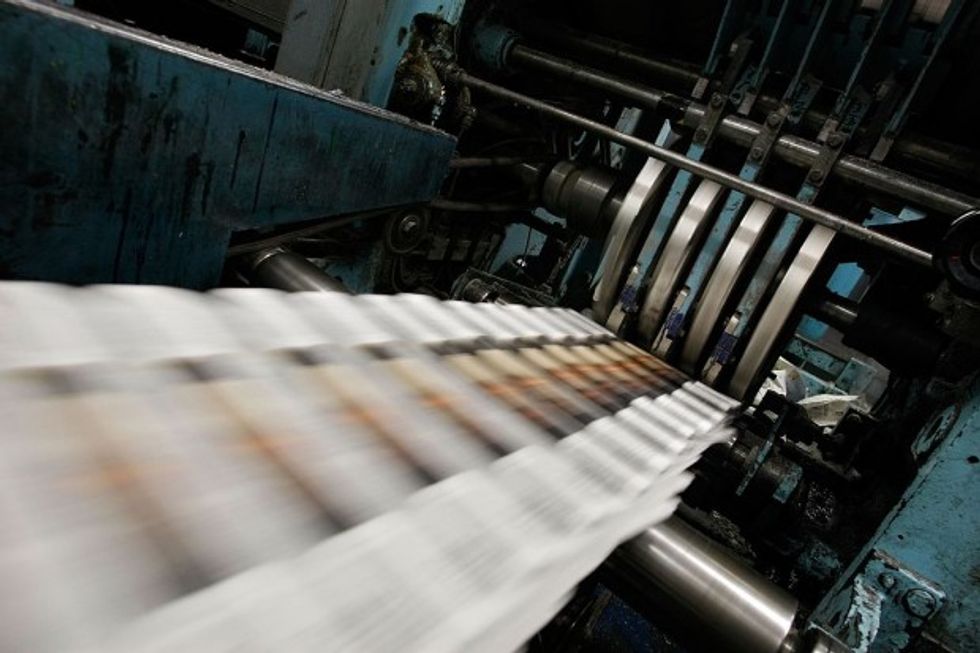
Photo by Justin Sullivan/Getty Images

Just 50 or 60 years ago, the entire country knew that they could believe everything that Walter Cronkite said.
With minor exceptions, they knew that everything written in the New York Times was true. And it wasn't just the New York Times or CBS that commanded this kind of respect.
Good newspapers across the country like the St. Louis Post-Dispatch, and smaller networks like ABC could be equally trusted. We lived in a country where, by and large, the mass media was in the business of dispensing truth, and tried to be fair and honest about it, even if they didn't always succeed.
And then came the Internet, and clearly biased news organizations like Fox News and MSNBC.

Suddenly, there was as much disinformation as there was information, and it was very difficult to tell the good guys from the bad guys. If you were born in the late 80s or the 90s, you had no Walter Cronkite to refer to; perhaps even your parents could not recognize the name. Bad information was just as prevalent, articulate and authoritative-sounding as good information.
What's happening in the 21st century is analogous to what happened in earlier centuries, exemplified by the economic theory called Gresham's Law. Simply put, Gresham's Law states that "bad money drives out good money."
If a particular kind of money is worth more --say because it is convertible into gold on a reliable basis -- it will be used in, say, foreign exchange transactions where the exchange rate into gold is favorable, but it will be hoarded rather than used for domestic transactions where the exchange rate is less favorable.
For example, for half a century starting in 1792, the United States maintained an exchange ratio between silver and gold of 15:1. But ratios elsewhere, particularly in Europe, ranged as high as 16.1:1. This incentivized gold owners to sell their gold in Europe, but to bring silver to the United States market. The effect was that gold was largely withdrawn from domestic American circulation; the "bad" money drove it out.
In the 21st century, this is what is happening to information.
The rise of "bad" information on the Internet and on news programs has caused the formerly "good" information to disappear. It is extremely difficult to find any news organization that is not at least somewhat biased in one direction or the other, even when they try not to be. Everyone thinks they need more emphasis to be heard in the noisy marketplace of 21st century ideas, and to counter the "bad" information coming from the other side of the aisle. Hence, the line between opinion and fact has disappeared, and worse, the line between truth and lie has been perhaps irretrievably blurred.
What we have is a World War II style clash between Tokyo Rose and the Voice of America right here in the 21st century U.S. If anybody is telling the truth, there's no good way to know it.
And thus we have the election of 2016. Although the trend started much earlier, there is no doubt that in 2016, beginning with the very earliest declarations of candidacy, there has been a frenzy of prevarication. The lying is so prevalent that in recent years fact-checking the statements of politicians has become a cottage industry, with sites and organizations set up exclusively to perform that service, and with major media outlets setting up divisions to do their own testing of the veracity of the candidates.
But there is no reason to think that these efforts are any more truthful than the candidates or conventional media outlets. Just as most people choose to believe the media organs of either the left or the right, people choose to believe whichever fact-checking effort appeals to them. In other words, rather than reestablishing the authority of the printed word, the fact checking sites have really just added to the noise. The truth has become more about faith than about fact.
And so the candidates this year have carte blanche to say whatever they'd like to say. Given that the "honest and trustworthy" polling numbers of both candidates is abysmal, lies can be told with impunity. After all, who really cares, right?
A paucity of truth eats away at the fabric of society. It makes an already fragmented society even more fragmented, and more fractious. While this country adheres to constitutional edicts agreed to hundreds of years ago based on the issues that existed at that time, perhaps it's time to consider the definition of what "free speech" should mean today, and the current harm being done by the version of it which is so heavily guarded and protected today.
I don't think the Founding Fathers had the Internet and what's going on today in mind when the constitution was adopted anymore more then they intended to allow individuals to possess nuclear weapons when the right to bear arms was granted. Certainly there is a comparison to be made between the increase from an 18th century gun to a nuclear warhead and an 18th century local newspaper and the Internet.
Ultimately, if one assumes "no justice, no peace", maybe the 21st century phrase should be "no truth, no justice."
David Bergstein is a financier and CEO of Cyrano Group. He is known for his talent in accurately predicting trends and recognizing opportunities to restore and reposition businesses. Bergstein is a leading expert in the field of financing.
–
TheBlaze contributor channel supports an open discourse on a range of views. The opinions expressed in this channel are solely those of each individual author.